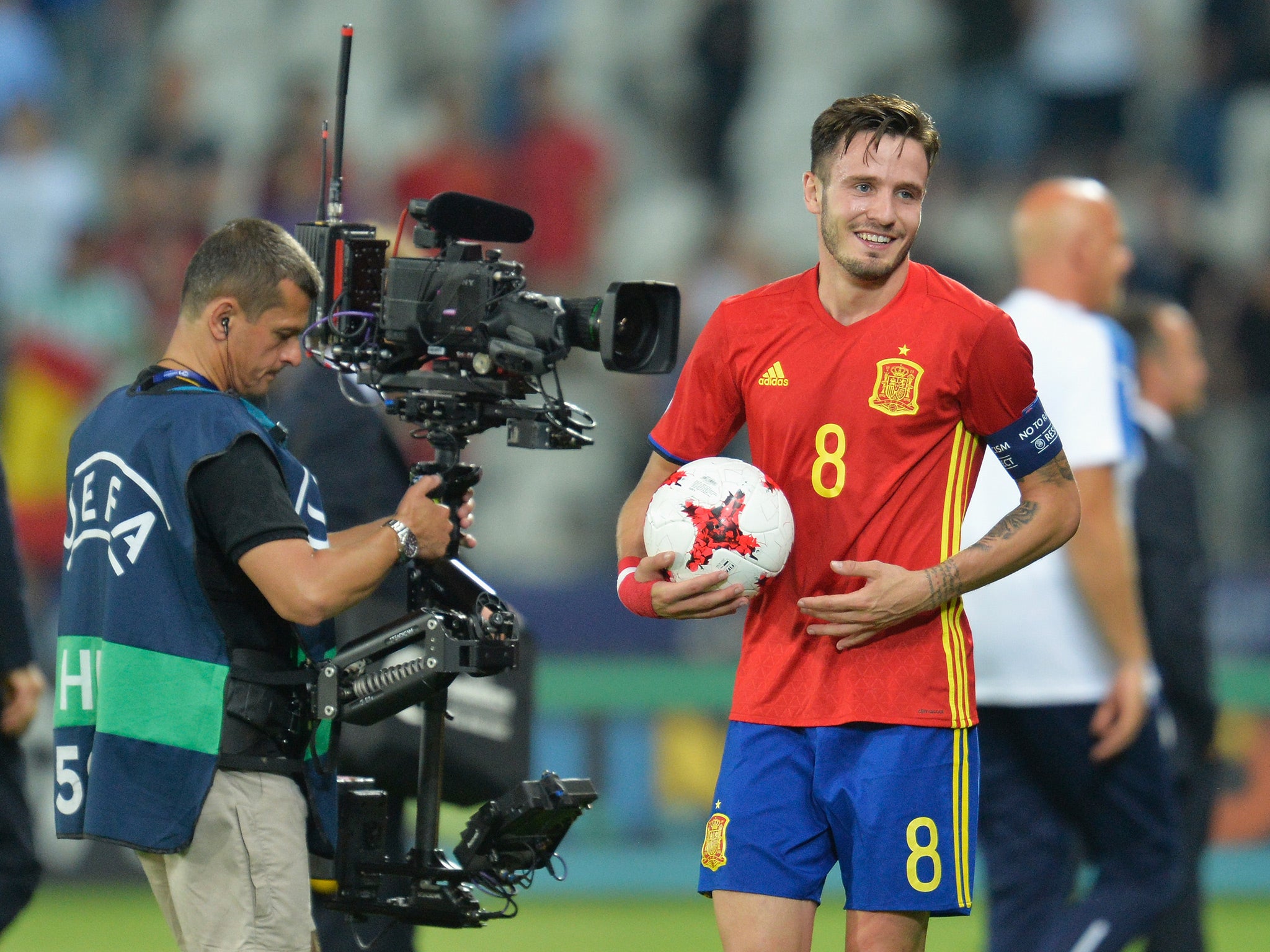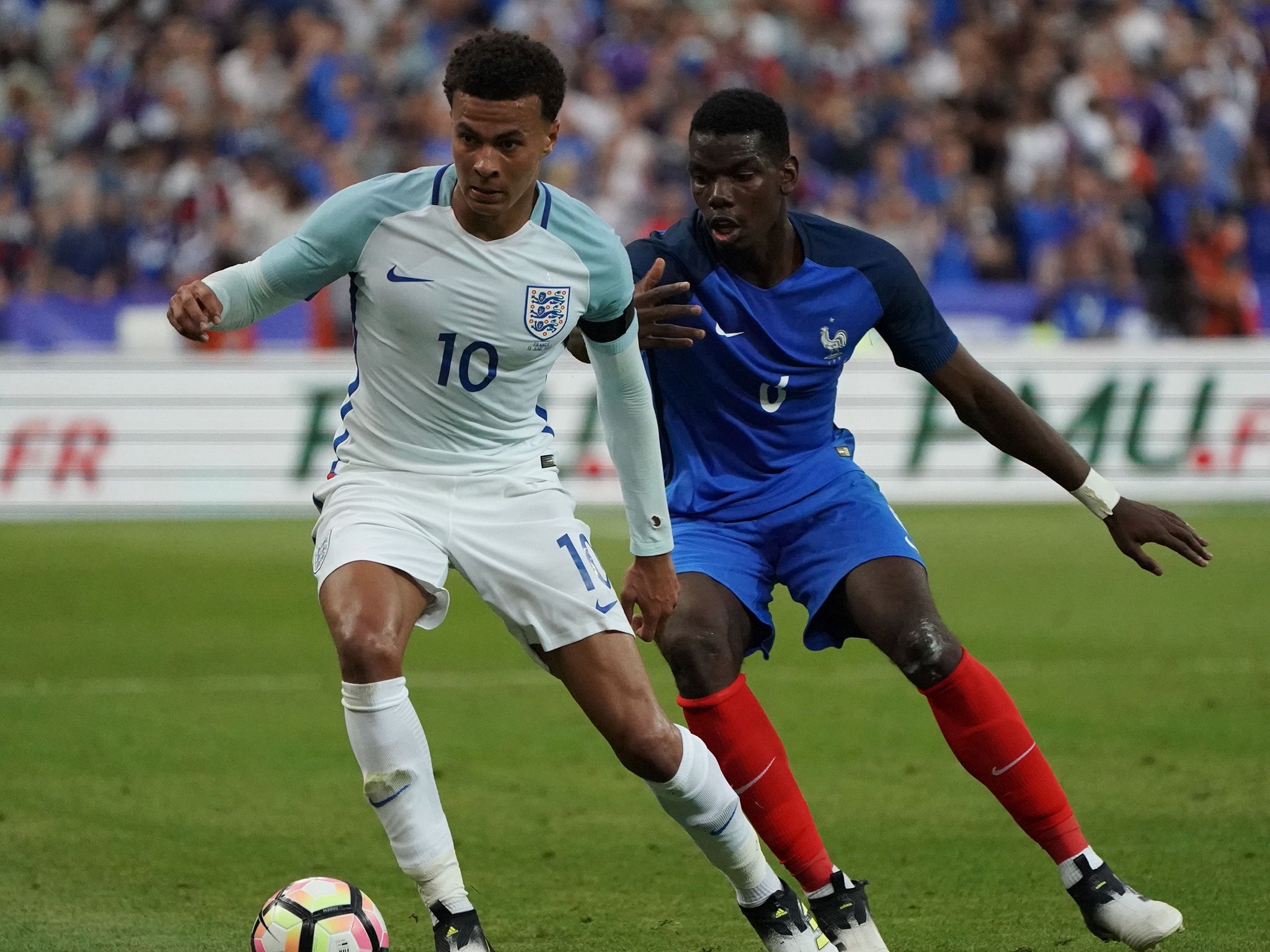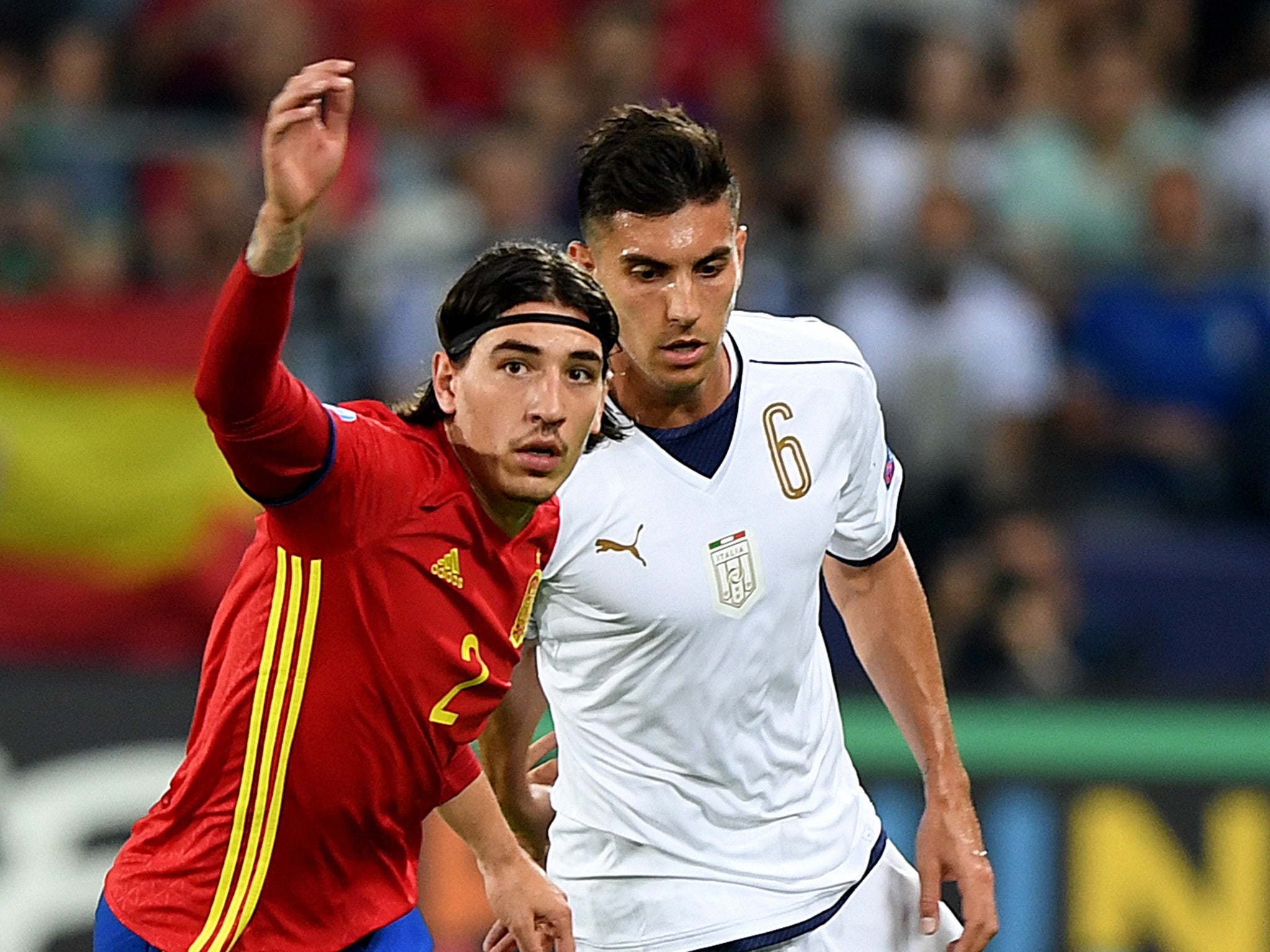Spain's run to U21 final carries a valuable lesson for England
'A footballer that has great talent isn't anything without the opportunity. Those two concepts have to go hand in hand'

It took until the second-half of his 64th game of a long and arduous season to break Italy's resistance, but Saúl Niguez looked far from jaded as he took aim with unerring power and accuracy to leave one of Europe's other hottest young properties Gianluigi Donnarumma helpless three times over as Spain's under-21's marched into a third European Championship final in four attempts.
Hours earlier, an all too familiar tale for English football had unfolded in Tychy as Aidy Boothroyd's side fell short of Friday's final, losing out by a solitary penalty to Germany after an entertaining 2-2 draw.
That England even made the last four was considered some measure of success given their recent record in this competition and, most importantly, the limited expectations based on how little top level experience many of those representing the Three Lions in Poland have.
Yet, how different it might have been had the likes of Dele Alli, Raheem Sterling, Eric Dier or Marcus Rashford - all players eligible to be selected - been made available to Boothroyd.
The desire to avoid burnout just 12 months out from the World Cup is understandable, but only Dier played more minutes than Saúl for club and country during a season in which he scored in the Champions League last 16, quarter and semi-finals.
So is English football harming its chances of success further down the road by not handing its elite young players the same tournament experience enjoyed by their Spanish counterparts?
“I can't say why others don't do it, but it is great for us, we see the positives from it and we believe in what we are doing,” says Spain's under-19 coach Luis de la Fuente, who is with La Rojita in Poland.
“It is beneficial first of all for the Spanish federation and for the players themselves because the evidence shows the results are fantastic.”
Indeed, a third title in six years on Friday will bring Spain level with Italy as the most successful European nation in under-21 football, whilst they also lead the way at under-19 and under-17 level.
“To have that experience, know those demands, everything complements each other. All of it is important and all of it is decisive so that these players can go onto be stars in the future.”
Some of them are even stars of the present. Spain's run to the final started with another hat-trick from Marco Asensio, whose glorious treble in a 5-0 rout of Macedonia, came just two weeks after scoring in the Champions League final.
The highest goalscorer and most capped under-21 player in Spain's history, Gerard Deulofeu, is also involved despite breaking into the senior side since Julien Lopetegui took charge after Euro 2016.
“What matters is the commitment they have, the three captains and the stars,” says Albert Celades, the former Barcelona and Real Madrid midfielder now in charge of turning a squad with an abundance of riches into champions on Friday.
“Saúl is excited and, like him, Deulofeu and Marco are as committed to the under-21s as they are when they are with Atletico, Barcelona and Madrid.

“They treat this tournament as one of the most important moments in their careers, and that's the real difference despite the fact that all of them have been and played for the senior squad now.
“If they didn't have that desire to be in this competition that first team experience could be a double-edged sword because they could end up feeling more important than the rest of the players here.”
They treat this tournament as one of the most important moments in their careers...
Spain's idea is that if players not only “get into the habit of winning” in De la Fuente's words but also learn on the job the ups and downs of living together for a three-week tournament, they will be far better prepared to recreate that success at senior level.
That isn't a purely Spanish experience either. Six of the Germany team that beat England in the 2009 under-21 Euros final went onto become world champions.
Sweden, winners two years ago, now lead France in World Cup qualifying thanks to a new golden generation including new Manchester United centre-back Victor Lindelöf, and three of the Portugal side they beat started the Euro 2016 final a year later.
The importance given to learning and winning at a younger age could be a missed opportunity for England, but it is a different type of opportunity that has allowed this Spanish generation to flourish.
Celades' squad contains by a distance not just the largest number of minutes in first-team football in the competition, but at the highest level. The starting XI against Italy had 56 Champions League appearances to their names, more than the other three semi-finalists combined.
“They have plenty of experience at the highest level in the Champions League, Europa League or in La Liga. Having been through that allows them to go into these games with a different mentality, with more confidence,” adds De la Fuente.
“Talent and opportunity has to be united. A footballer that has great talent isn't anything without the opportunity. Those two concepts have to go hand in hand.
“That the clubs are brave enough to give opportunities to young players in such a tough and competitive league like La Liga speaks very highly of the bosses and coaches. That is the merit of the clubs to give that opportunity to young, talented players.”

A route blocked in England by the seemingly endless millions on offer to even clubs in the bottom half of the table. However, De la Fuente believes other than saving money, there is another benefit to be gained for Spanish clubs blooding youngsters from their academy.
“There is also a sense of belonging for the player when he comes through the academy that helps the club. The players like playing at the club where they were formed, they feel recognised and there is loyalty.”
Spain's latest crop off the conveyor belt stand on the brink of matching the achievements of another ludicrously talented under-21 side containing David de Gea, Koke, Isco, Thiago Alcantara and Alvaro Morata among others in 2013.
Three generations look set to combine for another assault on the World Cup next year with the remnants of the 2010 World Cup winners and the 2013 under-21 team now in their prime set to be bolstered by the likes of Saúl and Asensio.
“The future is guaranteed,” continues De la Fuente confidently. “The level of the established players ensures they young ones can't rest on their laurels and have to keep progressing and improving to get into the full national team.”
Saul promised “the best is yet come” after sending Italy packing in midweek. That was warning shot not just for Germany, but for the world a year out from Russia.
Join our commenting forum
Join thought-provoking conversations, follow other Independent readers and see their replies
Comments